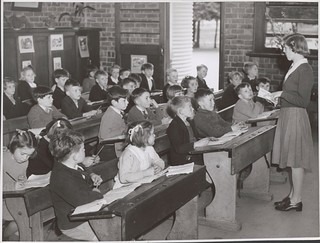AC1 – Explanation of the concept of scientific literacy
A lack of scientific literacy could result in false scientific conclusions being made. The following example highlights the importance of scientific literacy in the media.
In 2000, the first Dore Centre was established in the UK and claimed that it could provide the “miracle cure” for Dyslexia. The Dore Programme was developed by British businessman, Wynford Dore – whose daughter was severely dyslexic – and claimed to be effective against Dyslexia, ADHD, Asperger’s syndrome and various other learning difficulties. It was described as a programme of physical and mental exercise that “fine tunes and hard wires” the skill development parts of the brain to ensure that learning becomes easier and happens more naturally.
However as time passed, this “revolutionary” method of curing dyslexia was proven to be false. Firstly, the International Dyslexia Association stated the Dore Programme to have false claims due to the fact that, despite the functions of a Dyslexic brain differing from those a non-Dyslexic, they claimed that all brains were the same in the skill development centre. To further disprove the Dore Programme’s claims, Dorothy Bishop, psychology professor at Oxford University, stated that the published studies regarding the effectiveness of the programme were seriously flawed in that, in the instance that control data in experiments was provided, there is no significant or credible evidence of gains or any sort success in literacy – a key area which the Dore Programme claimed to develop.
This example highlights the importance of scientific literacy. In this case, many people bought into a programme that was false and had no reliable evidence to suggest that the exercises had any legitimate effect. These people simply based their opinions upon what the media said about the Dore Programme and, as a consequence, were not delivered the results they were promised.
AC2 – Explanation of the concept of scientific literacy
Scientific literacy is the knowledge and understanding of scientific concepts and processes required for personal decision making, participation in civic and cultural affairs, and economic productivity. It also includes specific types of abilities. In the National Science Education Standards, the content standards define scientific literacy.
Scientific literacy means that a person can ask, find, or determine answers to questions derived from curiosity about everyday experiences. It means that a person has the ability to describe, explain, and predict natural phenomena. Scientific literacy entails being able to read with understanding articles about science in the popular press and to engage in social conversation about the validity of the conclusions. Scientific literacy implies that a person can identify scientific issues underlying national and local decisions and express positions that are scientifically and technologically informed. A literate citizen should be able to evaluate the quality of scientific information on the basis of its source and the methods used to generate it. Scientific literacy also implies the capacity to pose and evaluate arguments based on evidence and to apply conclusions from such arguments appropriately.
Individuals will display their scientific literacy in different ways, such as appropriately using technical terms, or applying scientific concepts and processes. Individuals often will have differences in literacy in different domains, such as more understanding of life-science concepts and words, and less understanding of physical-science concepts and words.
Scientific literacy has different degrees and forms; it expands and deepens over a lifetime, not just during the years in school. But the attitudes and values established toward science in the early years will shape a person’s development of scientific literacy as an adult.
AC3 – Discussion of how teaching fair testing in school science links to scientific literacy
Teaching fair testing in school science links to scientific literacy as it allows the pupils to use their scientific knowledge and draw experience based conclusions. Conducting a fair test is one of the most important ways to ensure results of good, scientifically valuable experiments. It is important for an experiment to be a fair test. You conduct a fair test by making sure that you change one factor at a time while keeping all other conditions the same.
According to the Curriculum for Excellence’s Principles and Practice, carrying out practical scientific investigations and experiments develops the child’s inquiry and investigative skills. This links to scientific literacy as it develops their knowledge and scientific understanding whilst they plan and design procedures and experiments.
Teaching fair testing in school science also teaches children to be scientifically literate as it allows the pupils to measure what they know already. Pupils must also consider all aspects of a fair test when designing their investigations. Pupils should be able to identify and analyse any possible reasons why an experiment could be considered not fair. Their scientific literacy is further developed as they review what has been learnt as they draw experience based on conclusions.

